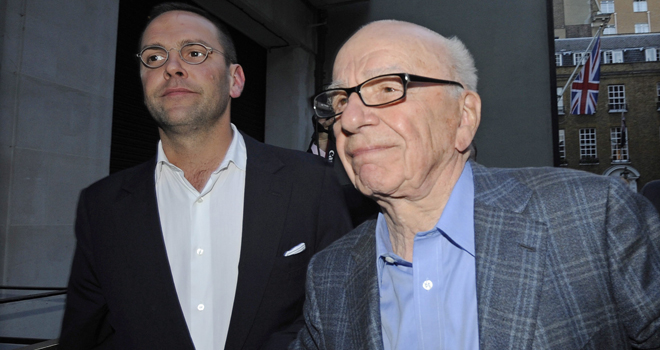New York City ditched a $27 million education contract with News Corp subsidiary Wireless Generation, citing the ongoing investigations into the phone hacking allegations related to News Corp’s now-defunct News Of The World tabloid.
State Controller Thomas DiNapoli rejected the Education Department’s contract with the company, the New York Daily News reports, which would have paid $27 million to create software to track test scores. The funding would have come out of the state’s $700 million “Race to the Top” education funds, but DiNapoli’s office said that there were concerns about News Corp’s “incomplete record” and about the ongoing scandal.
“In light of the significant ongoing investigations and continuing revelations with respect to News Corp., we are returning the contract with Wireless Generation unapproved,” wrote DiNapoli’s office of the decision.
In another potential setback for the Murdoch owned company, Britain’s Labour party is working to prevent News Corp from renewing its bid for British Sky Broadcasting, or BSkyB, Britain’s main satellite network. News Corp withdrew a $12 billion bid for control of the network back in July, at the height of the outrage over the News Of The World scandal. The company still owns a 39% stake in BSkyB, but the Labour party is working to prevent it from acquiring full ownership.
When Parliament returns September 5, Labour MP Ivan Lewis will propose a motion that, if approved by all parties, would create a public interest test, so that Parliament could block media companies from certain media acquisitions based on conduct. From The Guardian:
Under Labour’s proposed amendments to Section 58 of the Enterprise Act 2002, ministers would be given the necessary powers to ask regulators to apply a wide-ranging public interest test. Ministers would be also be able to intervene at any stage in the process if new information came to light.
“It is essential we learn lessons from the BSkyB fiasco so that media integrity is the top priority when considering future ownership and merger changes,” Lewis said.
He continued: “Ultimately, there is a strong case for removing politicians from media ownership and merger decisions. But, in the meantime, we must act to address the legal ambiguities which allowed Jeremy Hunt to disregard growing public concern and damaged public trust in the credibility of the decision making process.”






